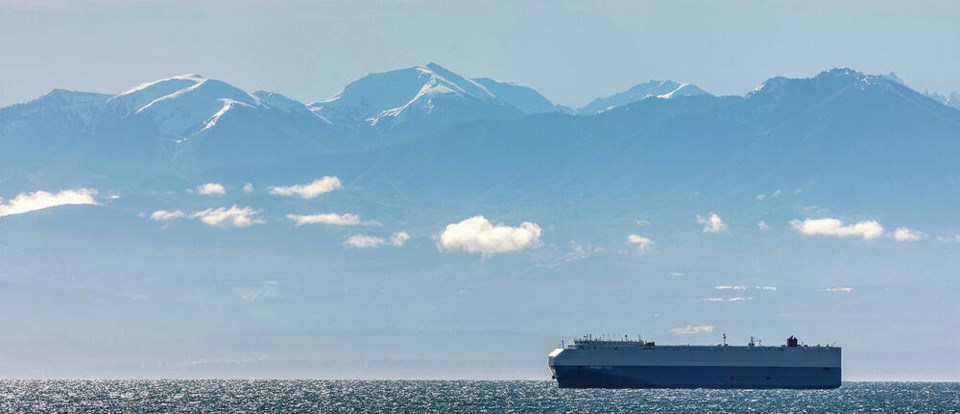–°¿∂ ”∆µ experienced its lowest snowpack since 1970 this winter, with the Island receiving just 49 per cent of normal snow levels.
The province released its latest Snow Survey and Water Supply Bulletin Wednesday measuring snowpack up until April 1, when 95 per cent of seasonal snowpack is typically accumulated, according to the report. Across the province, the snowpack is 63 per cent of normal.
The low snowpack combined with warm weather forecasts create “significantly elevated” drought hazards for the coming spring and summer, the report says.
The low snowpack does not guarantee the province will experience a drought this summer. Other factors, such as the rate of snow melt, spring and summer temperatures, and precipitation trends, will also play a role in the likelihood of drought, said Jonathan Boyd, a hydrologist with the River Forecast Centre.
In 2019, the last year when the year’s snowpack was also below normal, the province expected an extreme drought season, Boyd said. “Very late in June, the rains arrived and we had a very cold and wet summer season and unfortunately significant flooding in areas like the Chilcotin,” he said.
By contrast, in 2022, when the provincial average snowpack was 165 per cent of normal, there were initially no concerns about drought. But in early July, rain essentially stopped until October, bringing drought conditions, he said.
“So it’s still just a little bit too early to say definitively that we will for sure have a major drought this year,” Boyd said.
Drought and wildfire typically go hand-in-hand, Boyd said, so the province is looking at a potentially difficult fire season.
“Wildfire of course is so unique, because it really depends on lightning strikes or sometimes, unfortunately, human-caused fires, and every location is a little bit more unique,” he said.
The Island’s snowpack is one of the lowest in the province, but it doesn’t come close to the record low in 2015, when snowpack was just 15 per cent of normal.
At 49 per cent of normal, the Island’s snowpack is significantly lower than last year at this time, when it was 76 per cent of normal. It’s a strong indication the Island is in for another summer of drought, said Coree Tull, co-chair of the –°¿∂ ”∆µ Watershed Security Coalition.
Last summer saw ranchers running out of hay, Tofino on the brink of running out of drinking water, First Nations trucking in drinking water and a mass fish die-off on the Cowichan River, Tull said. The province needs to look at ways to increase water supply by better capturing precipitation and runoff and reducing water demand, she said. At the local level, communities need to develop plans to share limited water sources between residential users, agriculture, industry and fish, Tull said.
“This is really important to ensure that communities are ready with plans around how water can be shared for the best interest of their community, and its ecosystem and their watersheds,” she said.
Nathan Cullen, minister of water, land and resource stewardship, called the snowpack update “concerning news” following last summer’s drought conditions.
“It fuelled the worst wildfire season ever, harmed fish and wildlife, and affected farmers, ranchers, First Nations and industry,” he said in a statement.
The province is investing $100 million in a new watershed security fund to protect –°¿∂ ”∆µ’s water. It is also hosting workshops around –°¿∂ ”∆µ to help farmers prepare for drought and connect with financial support.
Cullen said all British Columbians can help to conserve water through small actions, such as taking shorter showers, watering lawns sparingly or not at all, and following local water restrictions.
Greater Victoria’s Sooke reservoir is filled by rainfall and is only minimally impacted by snowpack, said CRD spokesman Andy Orr. The reservoir is full, and Greater Victoria residents are unlikely to face anything beyond Stage 1 water conservation restrictions, he said. Stage 1 limits lawn watering to twice per week and watering trees, shrubs and vegetables during specific hours in the morning or evening.
>>> To comment on this article, write a letter to the editor: [email protected]




